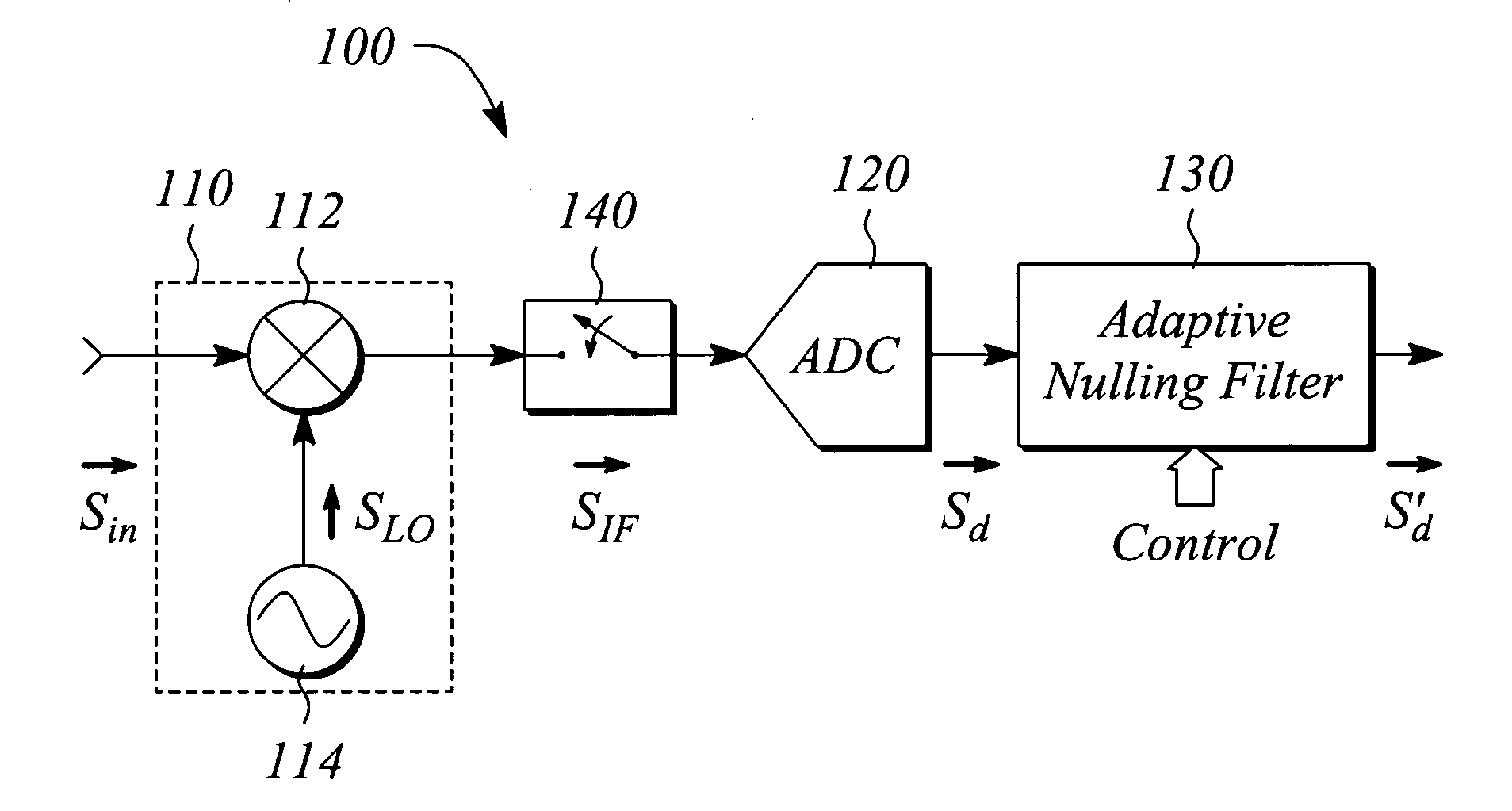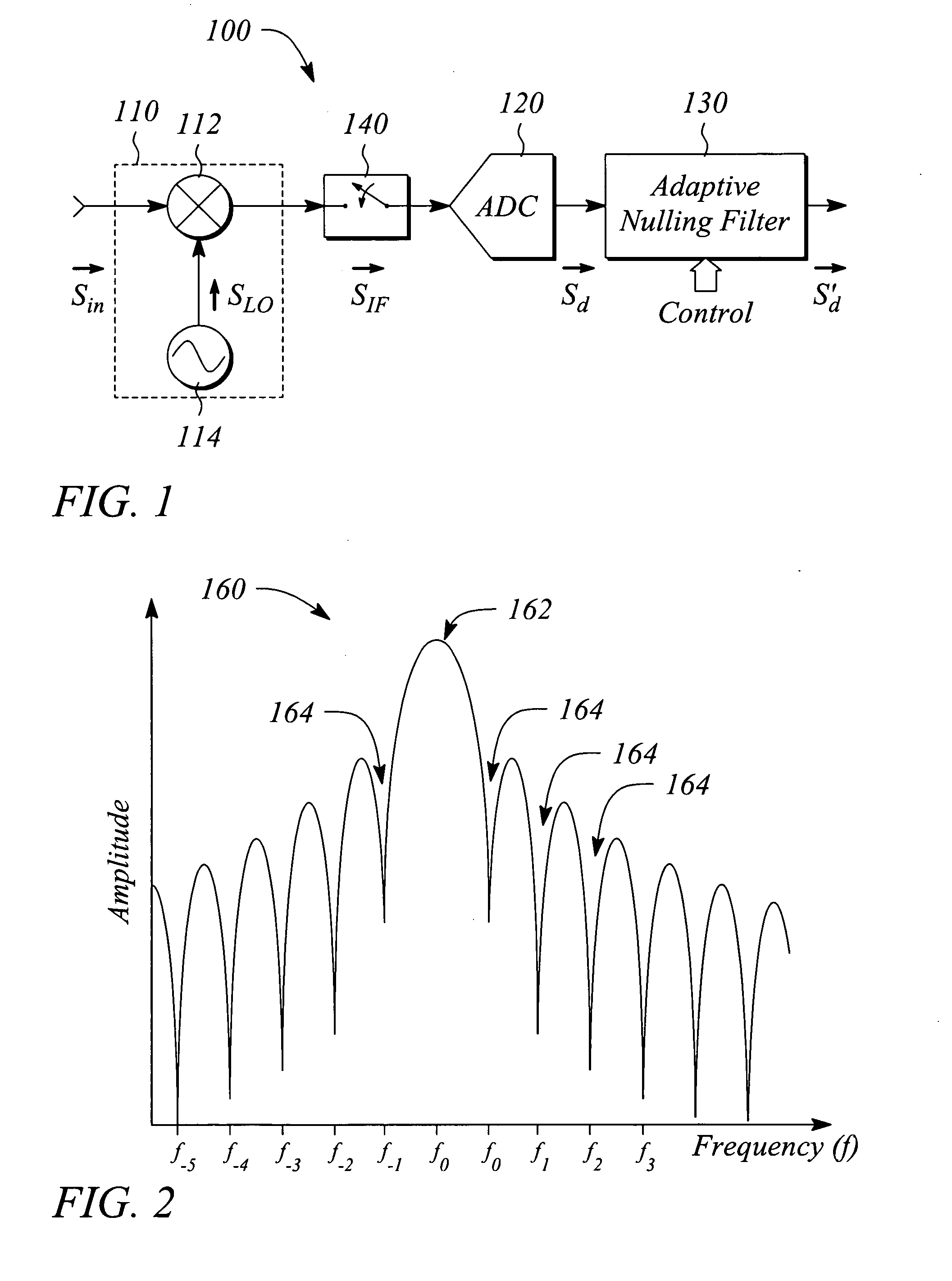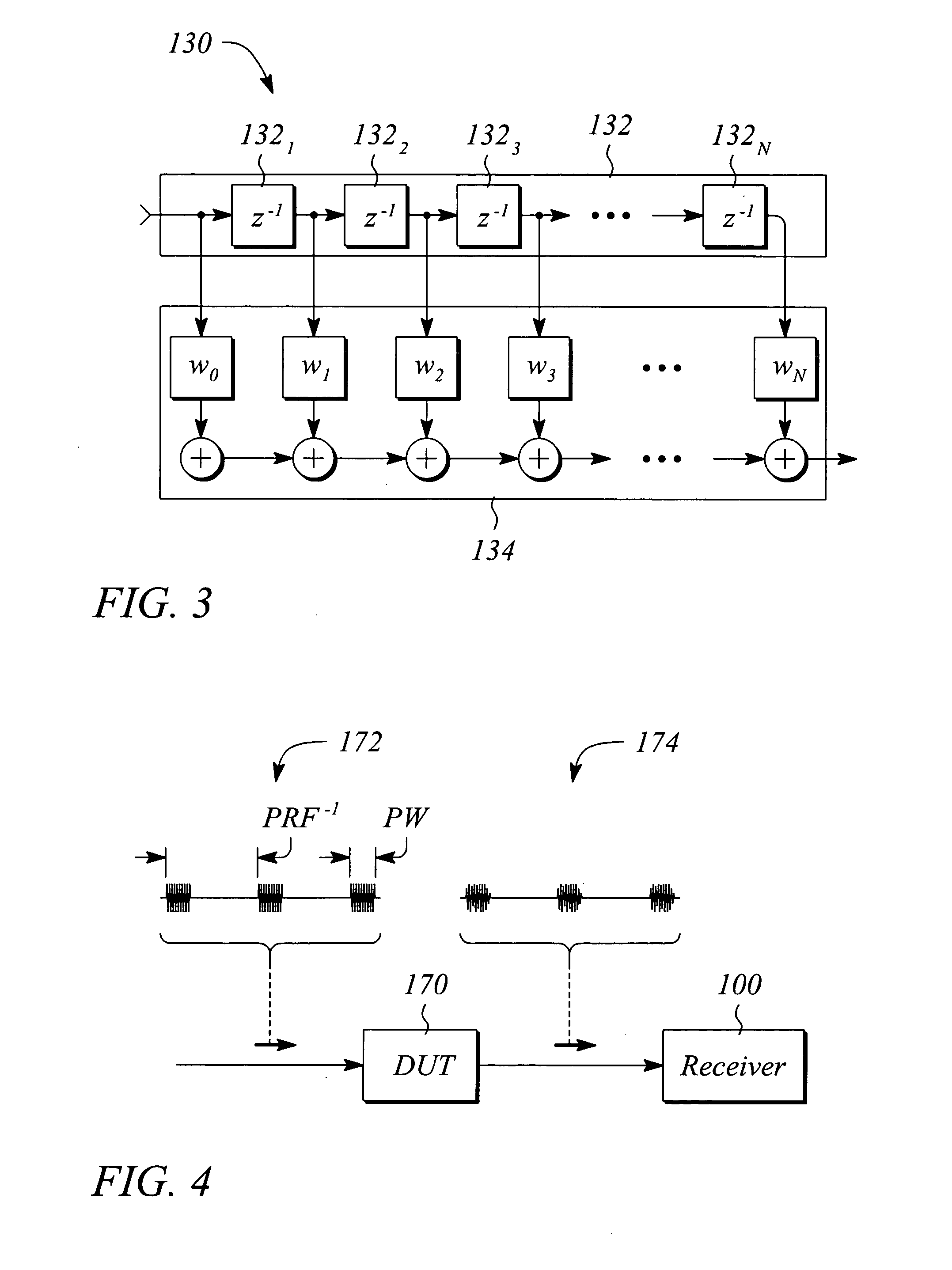Pulsed signal device characterization employing adaptive nulling and IF gating
- Summary
- Abstract
- Description
- Claims
- Application Information
AI Technical Summary
Benefits of technology
Problems solved by technology
Method used
Image
Examples
Embodiment Construction
[0022] Various embodiments of present invention facilitate measuring performance parameters for a device under test (DUT) in a pulsed signal environment. In some embodiments, adaptive nulling is employed to reduce effects of harmonics of a pulse modulated (i.e., ‘pulsed’) signal received from the DUT that is operated or tested in the pulsed environment. In some embodiments, the adaptive nulling is employed to substantially eliminate or remove such effects. In particular, filter transmission nulls are adapted to frequencies of targeted signal components including, but not limited to, unwanted or undesired frequency harmonics, thereby reducing an effect of the components. The received pulsed signal provides data from which the measured parameters of the DUT may be determined. The received pulsed signal is essentially free of the effects of the targeted components or harmonics as a result of the adaptive nulling. In some embodiments, intermediate frequency (IF) gating is used in additi...
PUM
 Login to View More
Login to View More Abstract
Description
Claims
Application Information
 Login to View More
Login to View More - R&D
- Intellectual Property
- Life Sciences
- Materials
- Tech Scout
- Unparalleled Data Quality
- Higher Quality Content
- 60% Fewer Hallucinations
Browse by: Latest US Patents, China's latest patents, Technical Efficacy Thesaurus, Application Domain, Technology Topic, Popular Technical Reports.
© 2025 PatSnap. All rights reserved.Legal|Privacy policy|Modern Slavery Act Transparency Statement|Sitemap|About US| Contact US: help@patsnap.com



